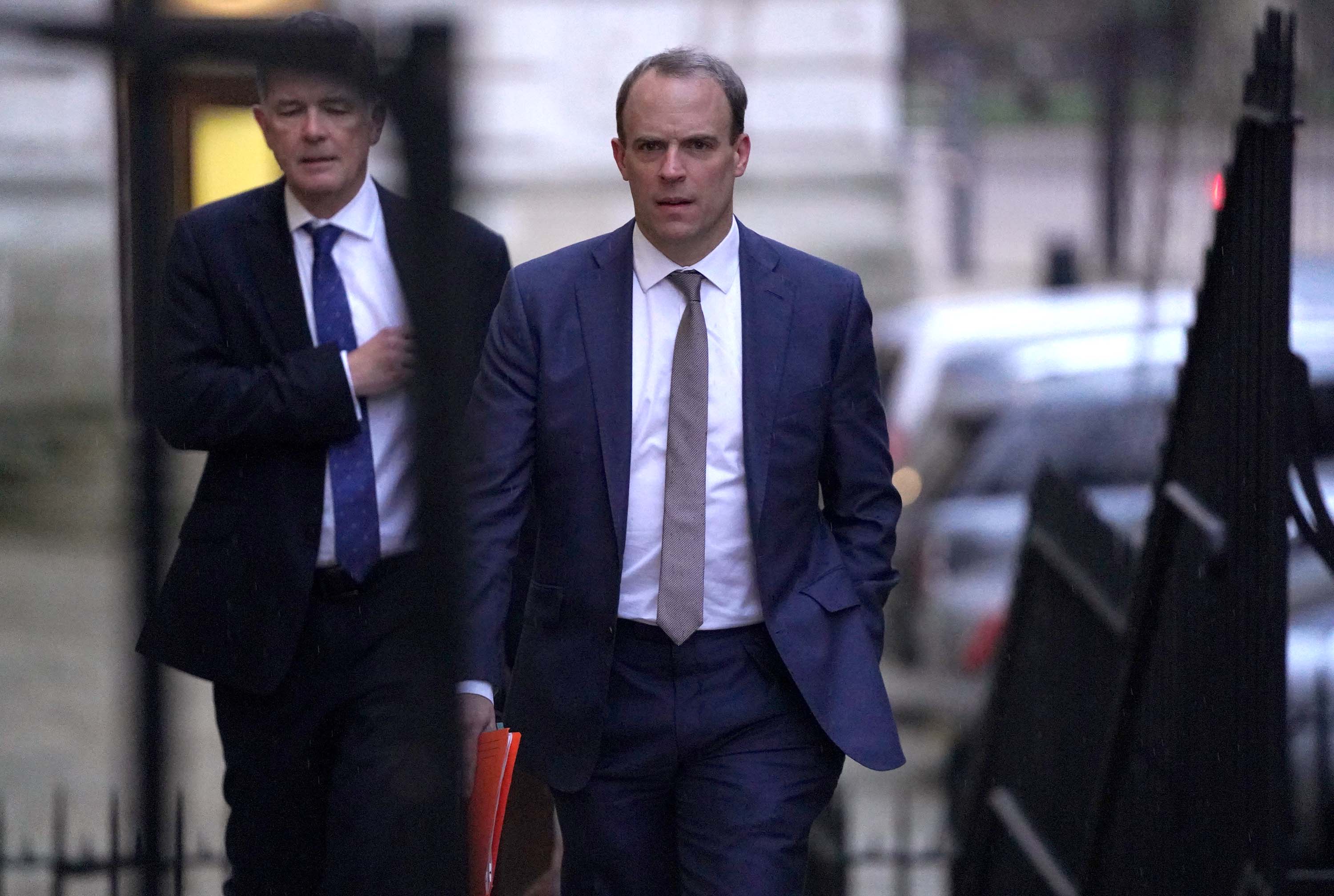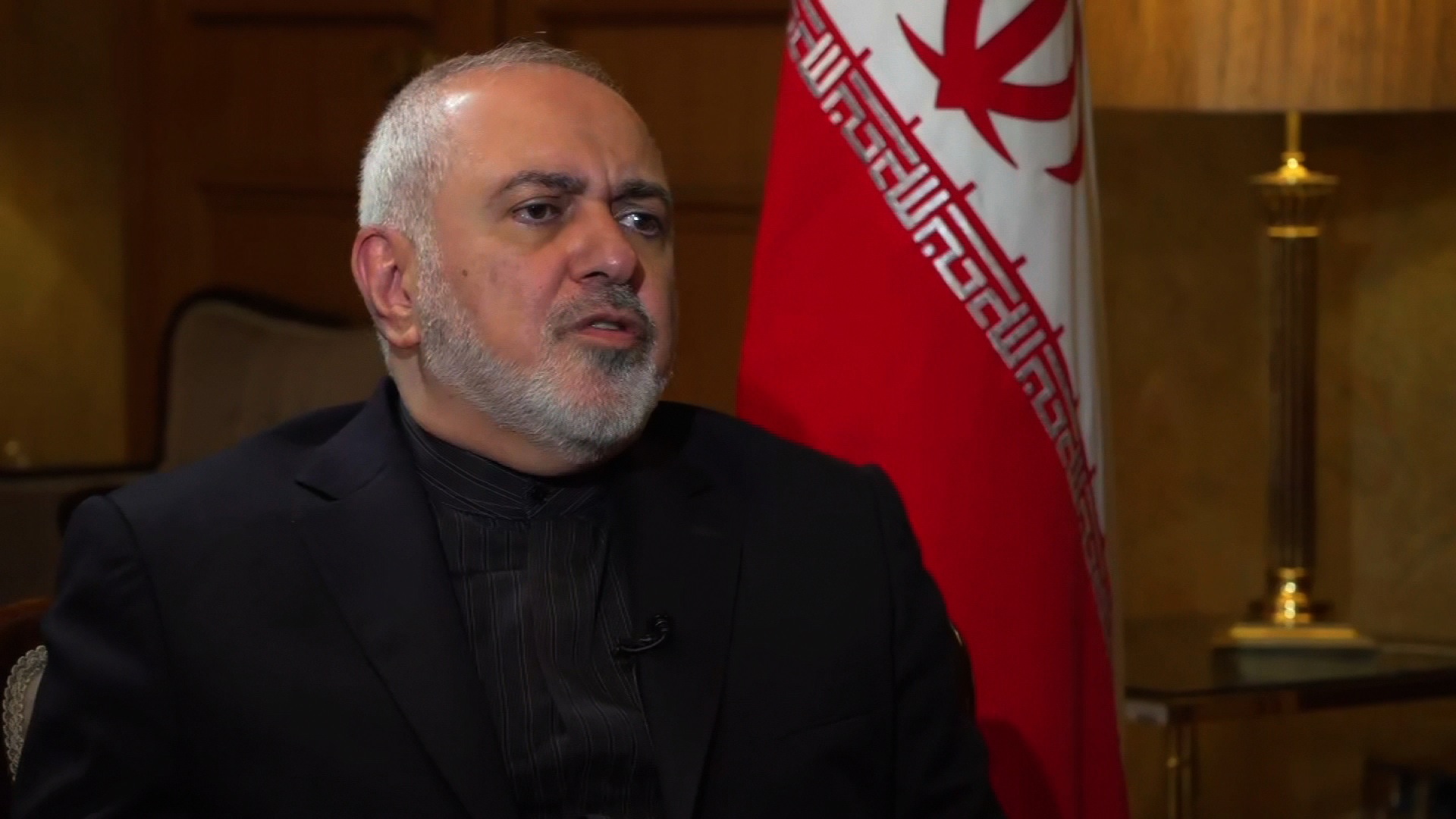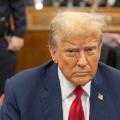Our live coverage of the airstrike and the aftermath has moved here.
The latest on the US-Iran crisis
By Meg Wagner, Eliza Mackintosh, Mike Hayes and Veronica Rocha, CNN
UK Foreign Secretary to meet with German and Italian counterparts over US-Iran tensions
From CNN's Samantha Tapfumaneyi

British Foreign Secretary Dominic Raab will meet with his French and German counterparts in Brussels Tuesday to discuss tensions between the US and Iran, according to a statement from the UK Foreign Office.
All three will "push for deescalation," said the statement. The trio will also discuss the Iran nuclear deal following Tehran's announcement on Sunday that it is withdrawing from further commitments to the agreement.
People killed in stampede at Soleimani's funeral, says state media
From CNN's Sara Mazloumsaki in Atlanta
"A number of people" have died in a stampede at General Qasem Soleimani's funeral Tuesday in his hometown of Kerman, Iran's Press TV reported, citing the head of Iran's emergency organization.
Press TV is reporting "millions" of people have taken to the streets of Kerman to pay their respects to Soleimani. CNN has not been able to verify this figure.
European officials say all options are possible for Iranian retaliation
From CNN's Max Foster
The Middle East should brace for all types of retaliation following General Qasem Soleimani’s death, due to his “cult status” both inside and outside of Iran, European officials told CNN.
Officials are preparing for the possibility of Iran accelerating the funding and equipping of regional proxies with conventional weapons to target the US and possibly its allies across the region. They note that this decentralized approach would make it more difficult to defend personnel and buildings.
Other concerns include a concerted set of disruptive or degrading cyber-attacks, similar to those we’ve seen in the past.
Officials told CNN the size and capability of the US military – along with President Trump’s demonstration that he will act aggressively – make it unlikely that a full-scale military confrontation will occur. However, forecasting is difficult as it is hard to predict what triggers Trump's actions.
Iran could respond in both covert and open ways in order to show their power to US and international audiences, they added.
If Iran does respond with a high-profile attack, it is important to remember that the US and Iran are entering their 41st year of conflict. But officials also say that the death of Soleimani is the first time the Islamic Revolutionary Guard Corps (IRGC) have paid a major price for their campaigns in Iraq and throughout the region.
Any high profile short-term response could take weeks rather than days due to heightened protective measures now in place, the officials say.
Iranian Parliament designates US forces "terrorists"
From CNN's Sara Mazloumsaki
Iranian lawmakers have unanimously voted for a motion declaring all US forces as "terrorists" in response to the assassination of Iranian General Qassem Soleimani last Friday, according to Iran's state-news agency IRNA.
The vote took place during the country's parliamentary session Tuesday, IRNA reported. After the plan was approved, delegates chanted, "Death to America."
In the same session, the parliament approved an expanded budget for the Quds Force, which Soleimani headed before his death.
Iran's Zarif: Trump is "making it worse for America" in the Middle East

Speaking to CNN in Tehran, Iranian Foreign Minister Javad Zarif said Tuesday that the country is not scared of further US military action following the airstrike which killed top general Qasem Soleimani in Iraq.
"We will defend our own territory, we will defend our people," Zarif told CNN's Fred Pleitgen. "The United States can defend the United States, but the United States cannot claim to be defending the United States several thousand miles away."
Zarif refused to be drawn into how Tehran might retaliate for Soleimani's killing, though experts have pointed to numerous US vulnerabilities across the region in countries where Iran has proxies and allies.
"We have people on our side in this region," Zarif said. "Beautiful military equipment doesn't rule the world, people rule the world. President Trump has to wake up to the reality that the people of this region are enraged, the people of this region want the United States out."
Iranians have taken to the streets in their hundreds of thousands in recent days to mourn Soleimani, most recently in the general's hometown of Kerman today.
"We are here, and we will not move," Zarif said. "We have been here for millennia, the United States is a newcomer."
Referencing Trump's threats of further strikes against Iran should Tehran respond to Soleimani's killing, Zarif said that Trump "has to apologize, he has to change course."
"He is just making it worse for America ... he has enraged the people of our region," Iran's top diplomat added. "(Trump) said that the US has wasted seven trillion dollars in our region, he has added another trillion (by killing Soleimani). Is the US any more secure for that?"
"The United States destroyed stability in this region," Iranian foreign minister tells CNN
Iran's Foreign Minister Javad Zarif blamed Washington's hardline policies against Tehran for destabilizing the Middle East and setting back peace in the region.
"What is important is for the Trump regime to realize is that everything in this region was improving following the JCPOA," Zarif told CNN's Fred Pleitgen in Tehran, referring to the Joint Comprehensive Plan of Action, the nuclear deal agreed under former US President Barack Obama.
"We saw normal elections in Iraq, normal elections in Lebanon ... we had the reduction of tensions in Syria ... what happened?" he said. "The United States started a maximum pressure campaign, terrorizing the Iranian people, making it difficult for Iranians to even get food and medicine."
Zarif said that "a war was started a long time ago by the United States, the United States destroyed stability in this region, the United States undermined security in this region."
Pointing to the effects of crippling sanctions placed on Tehran by Washington, Zarif said that "at least in the last month 25 Iranian babies died because of (tuberculosis) and because of US sanctions."
Iran's top diplomat promises "proportional" response to US "state terrorism"
By threatening to target Iranian cultural sites if Tehran responds to the airstrike which killed general Qasem Soleimani, US President Donald Trump showed the international community that "he has no respect for international law and is prepared to commit war crimes -- attacking cultural sites is a war crime," Iran's top diplomat said Tuesday.
Speaking to CNN's Fred Pleitgen in Tehran, Iranian Foreign Minister Javad Zarif said that Trump's actions and statements showed "he doesn't care about international law."
The strike against Soleimani while he was in Iraq was an act of "state terrorism," Zarif added, reiterating that Tehran will mount a response.
"This is an act of aggression against Iran, and amounts to an armed attack against Iran and we will respond. But we will respond proportionally not disproportionally," he said. "We will respond lawfully, we are not lawless people like President Trump."
Iranian foreign minister: Trump must realize his threats "will not frighten us"
Speaking to CNN's Fred Pleitgen in Tehran, Iranian Foreign Minister Javad Zarif said that US President Donald Trump should take a message from the huge crowds who have turned out across Iran to mourn slain general Qasem Soleimani.
"President Trump, after watching the crowds yesterday, must stop threatening these people who will be further enraged by his threats -- his threats will not frighten us," Zarif said.
He was speaking shortly after Soleimani's funeral was held in the general's hometown of Kerman, southeast of the capital Tehran.
Zarif added that Americans should also be asking questions about the airstrike that killed Soleimani, and the potential ramifications.
"Has (Trump) made Americans more secure? Do Americans feel more secure, or more welcome in this region?" Zarif said.
"How do (Americans) feel about people chanting ... that they should leave? How do they fell about that?"


